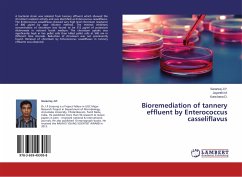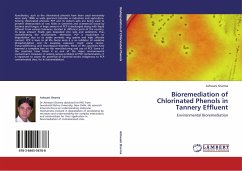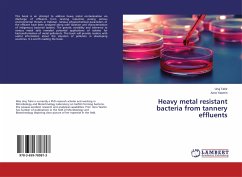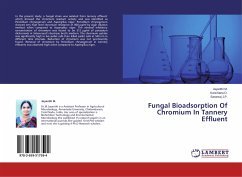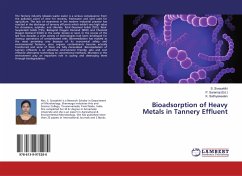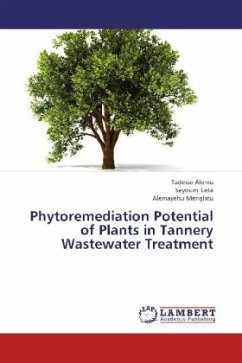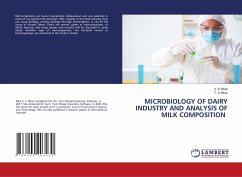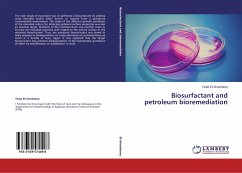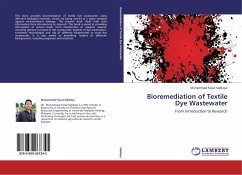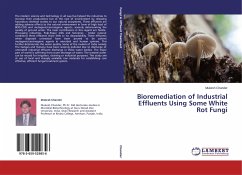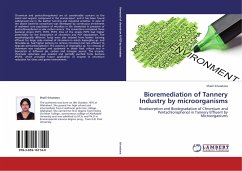
Bioremediation of Tannery Industry by microorganisms
Bioabsorption and Biodegradation of Chromium and Pentachlorophenol in Tannery Effluent by Microorganisms
Versandkostenfrei!
Versandfertig in 6-10 Tagen
52,99 €
inkl. MwSt.

PAYBACK Punkte
26 °P sammeln!
Chromium and pentachlorophenol are of considerable concern as the metal and organic compound in the environment, and it has been found widespread use in the leather tanning and industrial activities. In view of the above bacterial consortium was developed by continuous enrichment of sediment core population of microbes in the chemostat in presence of pentachlorophenol as sole carbon source. The consortium contained three bacterial strains PCP1, PCP2, PCP3. One of the strains PCP3 had higher potentiality for the biosorption of chromium and PCP degradation. Five morphologically different fungi w...
Chromium and pentachlorophenol are of considerable concern as the metal and organic compound in the environment, and it has been found widespread use in the leather tanning and industrial activities. In view of the above bacterial consortium was developed by continuous enrichment of sediment core population of microbes in the chemostat in presence of pentachlorophenol as sole carbon source. The consortium contained three bacterial strains PCP1, PCP2, PCP3. One of the strains PCP3 had higher potentiality for the biosorption of chromium and PCP degradation. Five morphologically different fungi were also isolated from leather tanning effluent for large scale removal of chromium in which Aspergillus sp. and Hirsutella sp. had higher potency to remove chromium but less efficient to degrade pentachlorophenol. The potency of Aspergillus sp. for removal of chromium was evaluated and optimized in shake flask culture and in bioreactor at different pH, carbon and nitrogen source. The enzyme, chromate reductase was isolated and partially purified from bacteria (PCP3), which provided future application of enzyme in chromium reduction for clean and green environment.



